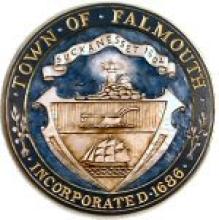
Fast, affordable Internet access for all.

Early survey results confirm the potential for a community broadband network in the coastal town of Falmouth, Massachusetts, reports The Falmouth Enterprise. Responses suggest wide dissatisfaction with service from the town’s current providers. Out of 378 respondents, 70 percent want better Internet access in the Cape Cod community; 92 percent want more competition.
Falmouth Economic Development and Industrial Corporation (EDIC) commissioned the survey as part of a feasibility study examining the potential for municipal broadband in the town of 32,000 people. With the initial results in hand, EDIC decided to continue with the second portion of the feasibility study to be completed later this year, moving Falmouth closer toward its own community network.
Community Support Grows
Municipal buildings and community anchor institutions in Falmouth already have Internet access through a local open access network operated by nonprofit OpenCape, resulting in significant cost savings. However, residents also want better connectivity for the rest of the community. Support for a municipal network grew throughout 2018 and 2019, culminating in EDIC issuing an RFP for a community network feasibility study in July.
Community Broadband Networks Director Christopher Mitchell travelled to Falmouth in the Fall of 2019 to discuss the community’s efforts on local television. During the program, he spoke with community leaders about the benefits of locally owned connectivity, the examples set by other municipal networks, and the unique opportunities that Falmouth has.
Study and Next Steps
The survey, conducted by CCG Consulting, revealed that more than half of respondents experienced broadband outages or slowdowns within the past year and that most subscribe to the same provider. “The vast majority of Falmouth residents rely on Comcast for the delivery of their Internet; 83 percent, according to the survey results,” said community broadband advocate Courtney Bird in a letter to the editor. “That’s a monopoly.”
Survey results also suggest that people in Falmouth pay higher monthly bills on average for triple play services. “One of the big drivers is pricing,” explained executive director Michael DiGiano at the EDIC meeting. “82 percent of the respondents said lower pricing from an alternative provider would make them consider changing, and 59 percent would be motivated by better reliability.”
Based on the community response, CCG believes a high take rate would be possible for a municipal broadband network in Falmouth, suggesting a five year target of 61 percent. “Typically, [CCG sees] a range of 45 to 50 percent . . . so in terms of predicted penetration rate for an alternative broadband provider, this is at the top end,” shared DiGiano.
The second portion of the feasibility study will look at engineering the network and financial prospects. EDIC and CCG plan to complete the study by June 2020, at which point the town or another provider could decide whether to proceed with a project.
